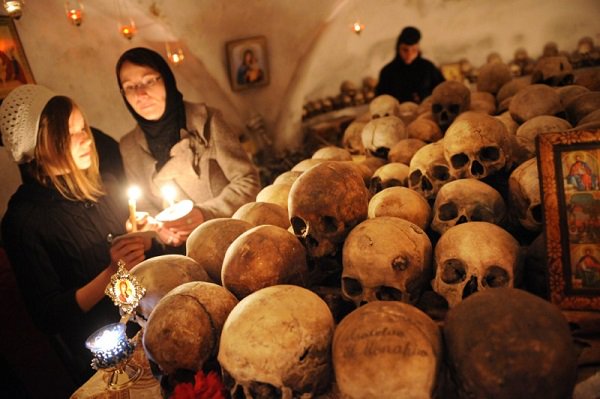What is ‘remembrance of death’ and what does it mean for us?
12 January 2022Remembrance of death (memento mori) helps us to overcome our former self because it brings humility into our soul. When we forget death, we suffer from the illusion that we’re going to be on earth forever, and this increases our arrogance, our greed, our carnality and our propensity for exploiting other people. Remembrance of death gives us a sense of our limitations here on earth and of the significance of our actions, our words and our thoughts for eternity and life after death.
In this way it helps us to face this life seriously, from the point of view of eternity, so that we don’t waste our life on earth by living it profligately, unreflectively and negligently, indifferent to the consequences. This is why the ancient Greek philosopher, Socrates, said that ‘those who reflect wisely, think deeply about death and are less afraid of it than other people’ (Plato, Phaedo, 67e). Saint John Chrysostom advises us to visit cemeteries on a regular basis so that we can reflect on the vanity of human affairs.

We all know that after a visit to a graveyard we’re more humble, kinder, less attached to material things and more open to God and other people.
Remembrance of death, concerning which Saint John of the Ladder and other Fathers have written so much, has nothing to do with any morbid, melancholic or neurotic condition. Anything of that nature is of no benefit to the soul because it brings despair and must be overcome with the help of a spiritual guide.
Godly remembrance of death is a charismatic and spiritual state which brings humility, peace and joy to the soul. It’s a gift from God and we should ask it from him.
How do we achieve remembrance of God?
The more we overcome our egocentric life and love God better, the more we’ll think about him. As people, we think about what concerns us and what we love. The Lord himself said: ‘Where your treasure is, there also is your heart’.
Studying the Word of God in Holy Scripture and in the Fathers of the Church, keeping company with spiritual people who love God, fervent prayer, regular attendance at divine services and frequent, worthy participation in Holy Communion all increase the love of God within us, and therefore the remembrance of him.
Saint Gregory the Theologian advises us: ‘Remembrance of God is more important than breathing’.
Continuous remembrance of God brings deep peace and love to the soul, even in the most difficult of life’s circumstances.






